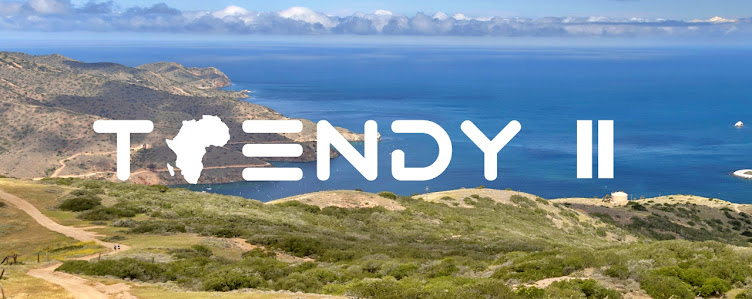Abidjan
(AFP) - Porsches, Range Rovers and even Maseratis... luxury cars are no strange
sight weaving through the old bangers that rumble along Abidjan's chaotic
streets, another indication of the emergence of a wealthy class in Africa. Each
of the vehicles costs at least tens of thousands of euros, representing decades
of work for an Ivorian earning the minimum wage, even after it was recently
hiked 60 percent to 60,000 CFA francs (around 90 euros, $125) a month.
Yet
in wealthy Abidjan neighbourhoods the streets are jammed with more luxury autos
than in rich quarters of European capitals. It's
the same story in Johannesburg, Lagos, or even Libreville. In the Gabonese
capital it is common to see SUV after SUV snaking along the oceanside
boulevard.
Wealthy
Africans love the big, high, four-wheel drive vehicles. Not
only are they better adapted to the roads, regularly in a poor condition, they
have also become something of a status symbol. In
Gabon, 70 percent of the 6,000 new vehicles sold each year are big 4x4s, mostly
Japanese models, according to the Gabonese Federation of Car Importers.
In
Ivory Coast, luxury cars make up only 3 percent of the 8,000 new cars sold each
year, said one industry expert who asked to remain anonymous. "However
certain customers are looking for the top of the line --
"bling-bling" cars -- there are people with money like that in the
market," he added.
The
African Development Bank put the size of the African middle class at 300
million in 2011. Ventures
financial magazine recently put the number of African billionaires at 55 --
more than triple the previous count. That figure is likely an underestimate,
the Nigerian magazine said, as many are not comfortable disclosing the true
extent of their wealth.
Luxury
automakers are not letting this bonanza pass them by. Porsche
boasts a brand new showroom in Victoria Island, one of Lagos' most chic
neighbourhoods. The
German carmaker's sales have jumped by nearly 40 percent the past two years in
South Africa, where it has been present for decades. It
has recently set up shop in Angola and Ghana as well as Nigeria, according to
Christer Ekberg, Porsche's managing director for the Middle East and Africa.
With
2,000 Porsche cars sold in sub-Saharan Africa in the first three quarters of
this year, which the company described as a "promising" figure, the
automaker is committed to expanding further across the continent. Local
partners are being sought for dealerships in Cameroon, the Democratic Republic
of Congo, Ethiopia, Gabon, Ivory Coast, Namibia, Senegal, Tanzania and Zambia. Mercedes
also views the potential of the African market as "enormous", a
spokeswoman said.
The
German carmaker has an assembly line in South Africa, where it sells 20,000
vehicles per year. BMW
said it also intends to keep expanding across Africa, where it saw 15 percent
sales growth in 2012 to 34,000 vehicles. As
for Audi, the company expects further growth in certain parts of Africa, where
its sales have doubled in three years to 22,000 vehicles. The
carmakers are also being pulled in by the need to service their vehicles that
have already found their way into African countries.
A
lack of parts and diagnostic equipment has led to these high-performance
vehicles being kept off the road for months in Abidjan, according to an expert
on the local car market. "If
Porsche comes to Ivory Coast, customers will be overjoyed to be able to repair
their cars in a company garage," said another expert on the African
market.
Source:
AFP


No comments:
Post a Comment